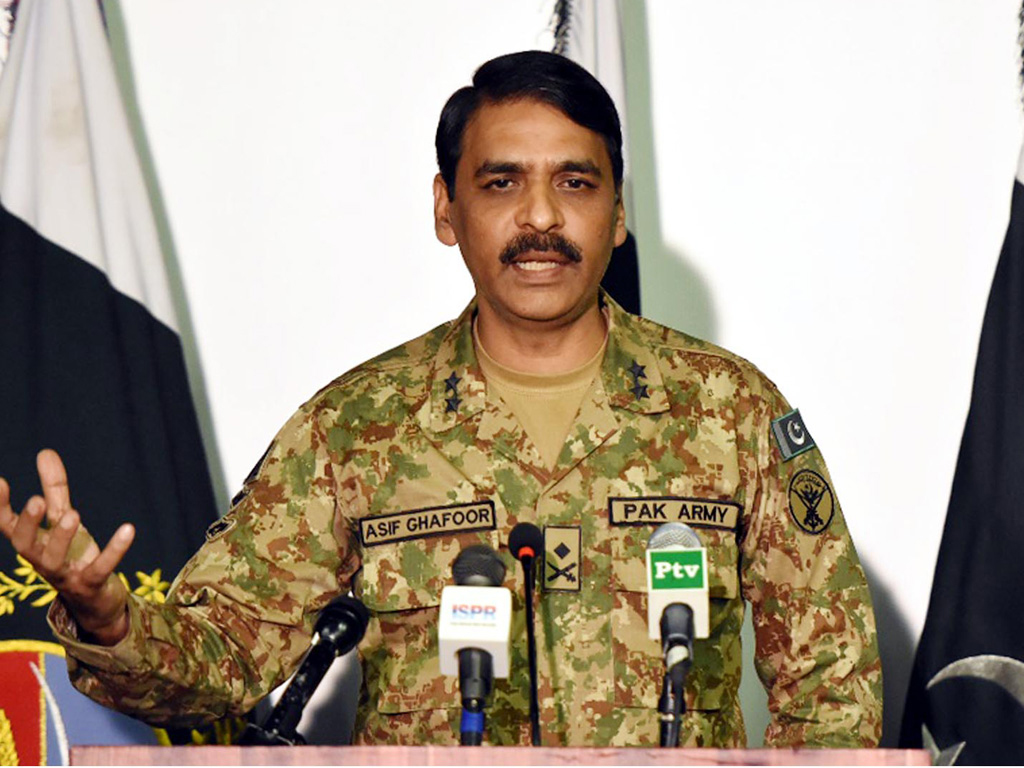'Don't mess with Pakistan'

As India keeps whipping up war hysteria in the aftermath of the Pulwama suicide attack, Pakistan's political and military leadership have responded in a cool and calculated manner. Following up on the Prime Minister's and the National Security Committee's statements, military spokesman Maj-Gen Asif Ghafoor addressed a news conference, where aside from effectively countering Indian allegations of Pakistani state's involvement in the Pulwama incident, he delivered a carefully worded message of peace, asking India to focus on the Prime Minister's offer of cooperation for investigations if actionable evidence is shared, and of talks on all issues of contention. Also, dwelling on India's declared policy to isolate Pakistan, the DG ISPR noted that world leaders from Saudi Arabia, Malaysia and Turkey are visiting Pakistan, while foreign investment is increasing, the CPEC project is on course, joint China-Pakistan exercises were held last October, and separately Pakistan Air Force held joint exercises with its American and Chinese counterparts, followed by 40 countries' participation in Pakistan Navy's Amman exercise. Pakistan also has been playing a major role in bringing peace to Afghanistan.
Interestingly, the military spokesman frankly acknowledged having made unwise decisions in the past. Thinking in Pakistan has changed, he said," we have learnt from mistakes, and neither is there room for any more mistake nor do we have any such intention." In other words, it is time to move on, and jettison the old baggage. The two countries have fought three major and two smaller wars which have not resolved anything, only caused death and destruction. In a warning directed at India's political leadership and its military planners, he reminded them that Pakistan's military capabilities are India-specific, its troops battle hardened after a long fight against terrorism, and that Pakistan's armed forces are "ready to respond to full spectrum threat". So the message for India was: "Don't mess with Pakistan." It, of course, is no secret that Pakistan's military preparedness is specifically aimed at countering any Indian adventurism. And Kashmir remains a flashpoint. It may serve a political purpose for the Modi government to blame this country for its troubles in that region. But, as pointed out by many in India, the present uprising in occupied Kashmir is essentially an indigenous movement. In fact, following the Pulwama incident the Kashmiris studying, working or doing businesses in various north Indian states faced violent attacks by Hindu extremists and told to go home, prompting the country's Supreme Court to order government agencies to protect them. Which is further proof, if any is needed, that these people are being punished because their fellow Kashmiris are struggling against the occupation of J&K by India.
India must not lose sigh of the fact that creating war frenzy can lead to some untoward incident, triggering an uncontrollable conflagration between the two nuclear-armed nations. Needless to say, there are no winners in a nuclear war. The New Delhi government should pay heed to sane advice offered by several prominent Indians, including the ruling BJP's own veteran leader and former foreign minister Yashwant Sinha who, a few months before the present incident, said India has lost Kashmir due to its policy of bloody repression. Mindful of the dangers of a conflict, international players, including the US, China and Russia, have advised the two countries to resolve their issues of dispute through dialogue. That though is unlikely to happen until the upcoming Indian general elections are over. The least expected of India at this point in time is to stop ratcheting up tensions against Pakistan.























Comments
Comments are closed.